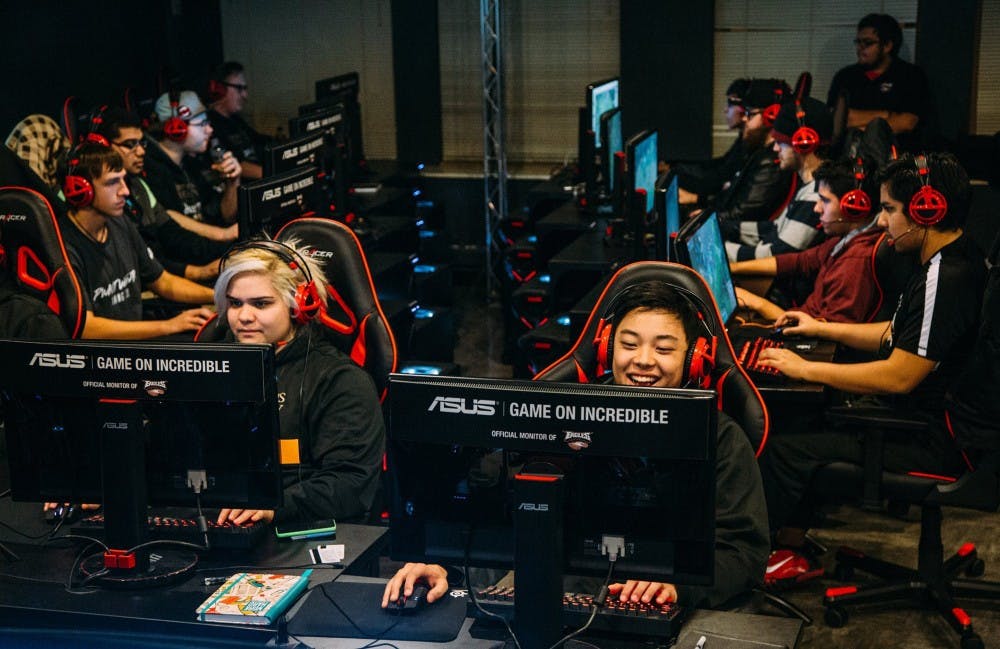ASU’s Heroes of the Storm team, Real Dream Team, grinded day-by-day, hour-by-hour, minute-by-minute in preparation for this year’s Heroes of the Dorm tournament, a collegiate competition hosted by Blizzard Gaming with participants from five hundred universities. The team, which narrowly lost in the championship in 2015 would not see the same fate again. Real Dream Team’s hard work paid off as they did not drop a single game on their quest for victory, ultimately being crowned national collegiate champions.
While the team’s road to victory definitely should be celebrated across campus, the team represents a far more important matter — the growing eSports industry. An emerging phenomenon in the U.S., eSports are a form of competition derived through human-computer interaction and facilitated through electronic systems — in other words, online competitive gaming. With the most popular games being League of Legends, Dota and CounterStrike, fans of video games can find competitions for essentially all of their favorite games.
While eSports are one of the most competitive atmospheres globally, in the U.S. they has a negative stigma. E-sports are a recognized sport in most other countries around the world — most notably South Korea. Yet, gaming in the U.S. receives slanderous libel, and people are often insulted as being “nerds” for playing video games. Perhaps the most condescending insult is that eSports do not require skill or aren’t sports because no physical activity is required.
As an online gamer myself — I am in the process of trying to get into the Master’s league in StarCraft II — it is not only insulting to not consider the top competitors athletes, but it is also blatantly false. While typing fingers and moving your wrist is not too much physical activity, the amount of mental activity that goes into higher-level gaming is remarkable.
Studies have shown that higher level playing and games that involve higher critical thinking improve cognitive skills, similar to how football advocates defend their sport. Some characterize football as a bunch of brutes who butt heads with each other, but in reality, there is so much statistical data to drive play calling. The same can be said for e-gaming. While lower level or recreational playing may not be as stimulating, the top-tier is still remarkably good at what they do.
As for the physicality argument, the amount of strength exerted in a sport does not truly matter. In many sports, specifically those that are team-based, the winner may not be the strongest group of people, but rather the ones who strategize the best. Sports are not judged on how much physical energy is exerted. I am not too quick to judge archery or curling different than skiing or swimming. All of these sports require strategy just as much as physicality.
ESports are only going to continue to grow. League of Legends, arguably the most popular game around, boasts a user population of about 67 million players per month. The International, Dota’s global championship, had a prize pool of 18 million dollars. By 2017, League of Legends viewership is expected to surpass viewer ratings of the NFL.
ASU has a unique opportunity having national champions in an eSport. Support of the Real Dream Team can help in beginning to negate the negative stigma around gamers. These are great people who put their blood, tears, and sweat into what they love: It is what anyone would ask from any other typical athlete. While recognizing it as a sport may take some time, a good start is the acknowledgement that the competitors in eSports work hard and are dedicated to their game. With enough support and motivation, you may just very well someday have been in school with a future global champion.
Related links:
Heroes of The Dorm, Tespa bring significance to collegiate eSports
Real Dream Team sweeps Utah in TeSPA championship
Reach the columnist at jeffery.brooks@asu.edu or follow @abrooks14 on Twitter.
Editor’s note: The opinions presented in this column are the author’s and do not imply any endorsement from The State Press or its editors.
Want to join the conversation? Send an email to opiniondesk.statepress@gmail.com. Keep letters under 300 words and be sure to include your university affiliation. Anonymity will not be granted.
Like The State Press on Facebook and follow @statepress on Twitter.




